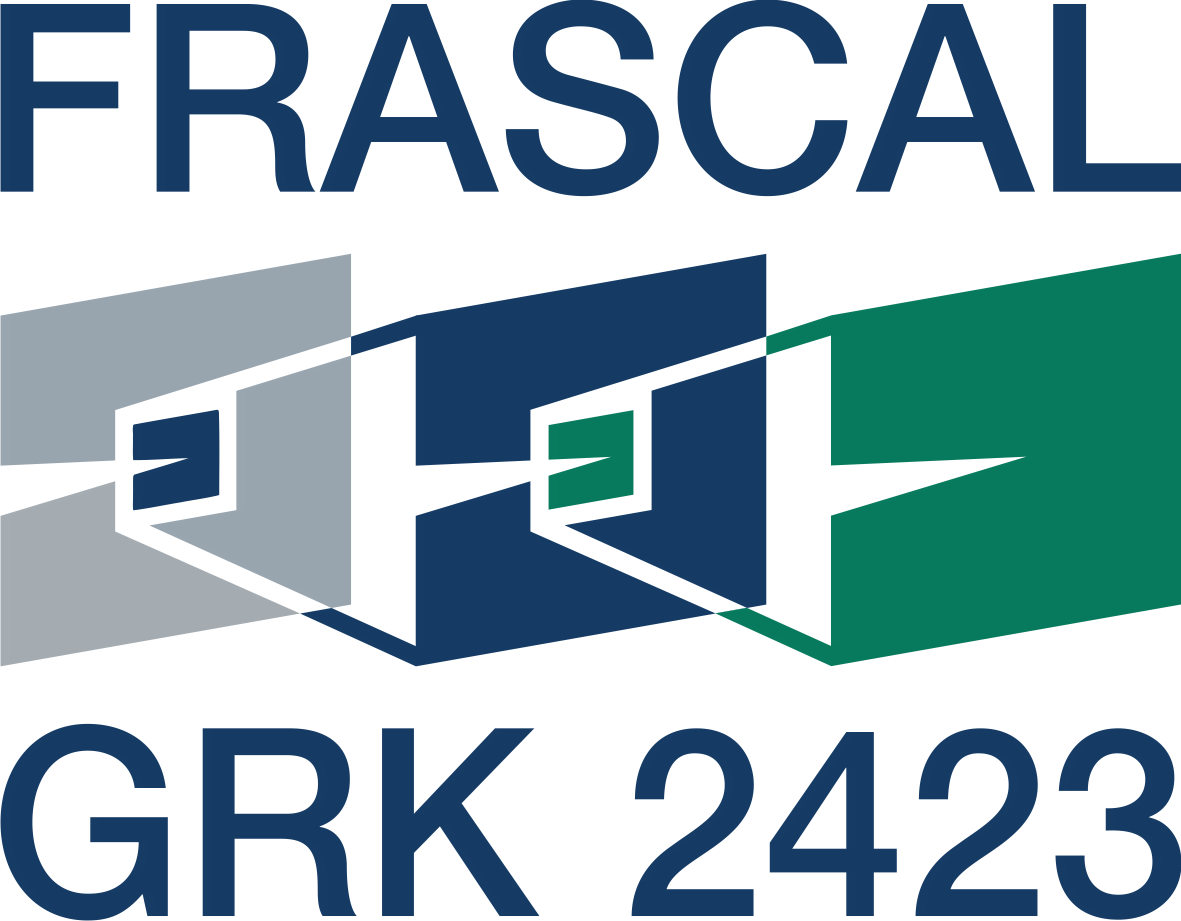Workshops & Seminars for Gender Equality at FRASCAL
Workshops organized by F3G with participation of FRASCAL members:
The F3G network (Research Associations of Friedrich-Alexander-Universität Erlangen-Nürnberg for the promotion of equality) offers lectures and seminars on the topics of women’s advancement, gender sensitization, etc., in addition to a variety of other gender equality measures, in which members of the affiliated research associations can participate. Thus, some FRASCAL members have also taken advantage of these training measures and participated in the following workshops:
| 2023 | |||
| 01 | Navigating Social Media | Dr. Karin Bodewits | 16. – 20.01.2023 |
| 02 | Thesis Defense Training | Alexander Roggenkamp | 16. – 17.02.2023 |
| 03 | Supervisory Work & Leadership | Dr. Silke Oehrlein-Karpi | 06. – 07.03.2023 |
| 04 |
Writing Grant Proposals in Science |
Prof. Dr. Annette Kolb | 23. – 24.03.2023 |
| 05 | Presenting Data | Dr. Juliane Handschuh | 25. – 26.04.2023 |
| 06 | Gender Competence – and why it matters in a researcher’s life and career |
Dr. Sabine Blackmore | 23.05.2023 |
| 07 | Working effectively and efficiently – Time and Project Management for Researchers | Dr. Daniel Friedrich | 28. – 29.06.2023 |
| 08 | The Essentials of Scientific Writing | Deborah Bennett, Ph.D. | 05. – 06.10.2023 |
| 09 | Gender and Diversity in Academic Teaching |
Melanie Bittner | 30.11..2023 |
| 2022 | |||
| 01 | Self-presentation and networking | Dr. Karin Bodewits (München) | 24. – 27.01.2022 |
| 02 | Thesis Defense Training | Dr. Malte Engel (Schönwalde) | 17. – 18.02.2022 |
| 03 | Good Scientific Practice | Dr. Anne Hamker (Leipzig) | 25.03.2022 |
| 04 |
Understanding Gender | Dr. Susanne Frölich-Steffen (Zorneding) |
07.12.2022 |
| 2021 | |||
| 01 | PhD, and next? Career options, skills and orientation for scientists & individual coaching | Dr. Karin Bodewits & Dr. Philipp Gramlich (München) | 26. – 29.01.2021 |
| 02 | Small Talk? It’s nice to be connected! | Deborah Ruggieri (Berlin) | 10.03.2021 |
| 2020 | |||
| 01 | Potential Analysis – Figuring Out Your Skills and Values | Dr. Silke Oehrlein-Karpi (Mainz) | 24.01.2020 |
| 02 | Self-Presentation | Julia Baumeister (Berlin) | 18.05.2020 |
| 04 | Career Paths and Academic Job Applications | Dr. Dunja Mohr (Erfurt) | 01.10.2020 |
| 03 | Time Management | Peter Kronenberg (Bonn) | 29.05.2020 |
| 05 | Conflict Management: Constructively Dealing With Conflict | Dr. Isabel Werle (Mainz) | 29.10. 2020 und 30.10. 2020 |
| 06 | Publishing in Science, Technology, Engineering and Medicine | Petra Heermann, Stephanie Kolbe, Dr. Jürgen Rohr-wild, Dr. Katrin Seyler (all Erlangen) | 23.10.2020 und 26.10.2020 |
| 2019 | |||
| 01 | My Project Management Skills | Dr. Silke Oehrlein-Karpi (Mainz) | 22.11.2019 |
Workshops and seminars organised by FRASCAL in cooperation with the FAU Graduate Centre:
| 2023 | |||
| 01 | Unconscious Bias in Academia: How our brain tricks us | Dr. Iris Wangermann | 14.04.2023 |
| 2020 | |||
| 01 | My Career in Academia: Conditions and Perspectives – Professional career, family building, and combining both | Dr. Stefanie Herberger (Erlangen) | 04.12.2020 |
| 2019 | |||
| 01 | Gender Equality in Research | Dr. Silke Schnurbusch (Erlangen) | 19.07 2019 |
Pilot seminar series “Gender Equality in Research”:
In cooperation with the Office for Gender and Diversity at FAU and with the support of FAU´s ARIADNE mentoring team, a completely new and comprehensive concept for a modular pilot seminar series „Gender Equality in Research“ was developed exclusively for GRK 2423 FRASCAL, initially with the three full-day seminars. Two trainers were recruited who are very renowned in this field throughout Germany and have excellent references. The individual modules were thematically linked, but did not build on each other and could therefore be attended individually and specifically according to interest.
| 2020 | |||
| 01 | Understanding Gender | Dr. Susanne Frölich-Steffen (Zorneding) |
30.04.2020 |
| 02 | Gender Competence Training | Dr. Sabine Blackmore (Berlin) |
30.10.2020 |
| 03 | Gender in Teaching and Learning | Dr. Susanne Frölich-Steffen (Zorneding) |
20.11.2020 |
Understanding Gender
This workshop provided a brief introduction to how gender plays a role in everyday life at the university. Gender stereotypes and sexism were discussed, as well as how gender affects us and our academic careers The workshop gave participants the opportunity to both reflect on the stereotypes that influence their own academic development and discuss how to deconstruct gender stereotypes to contribute to more gender equality in academia.
Gender Competence Training
In this workshop, participants were introduced to „gender competence“ in their research and teaching areas. The term „gender competence“ and its different aspects (e.g. subcompetences) were outlined, contextualized and underpinned by the legal framework. Participants learned about tools for gender competent action and applied them to a practical case, e.g. planning a conference or a summer school.
Gender in Teaching and Learning
Gender and power relations are intrinsic to all social institutions, and this is particularly relevant for academic institutions. Gender constructions and relations begin at home, but stereotypes are also reinforced through teachers’ behaviour, social interactions at university and the curriculum there. This workshop aimed to expand the gender perspective and skills of teachers at university. The methodology was participatory and included discussions, brainstorming and group work. It is intended to increase gender responsiveness and sensitivity to teachers.
